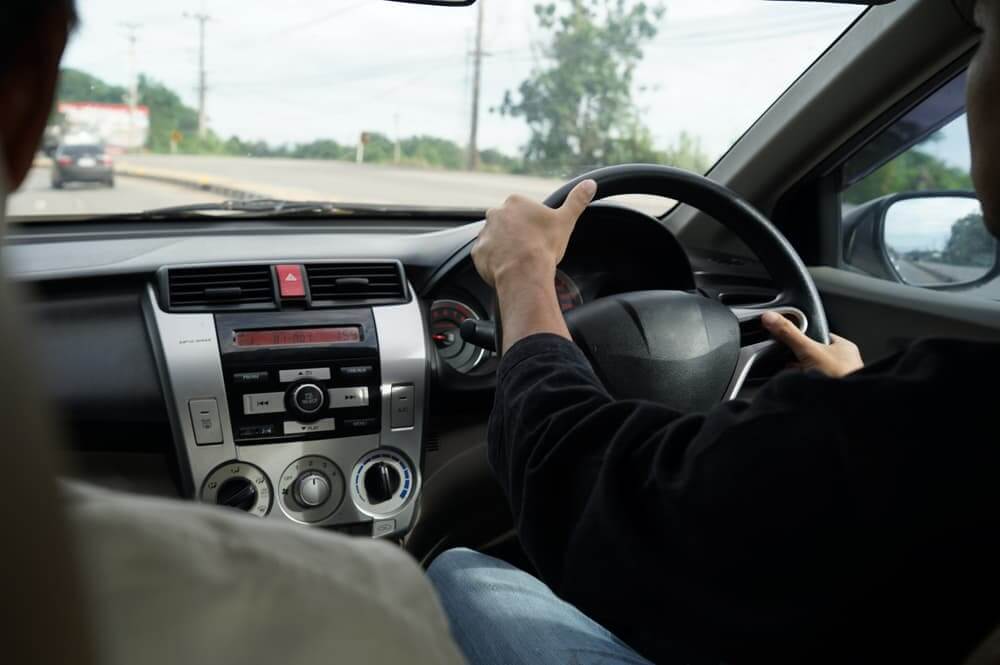Is there an ISA for non UK citizens living in the UK?
Everything you need to know about ISAs for non-UK citizens in a handy guide, including eligibility and how to open one.

If you need to cancel your road tax, our guide will show you exactly how to do it. So read on for the lowdown on how to cancel your road tax and make sure you get a refund, including all the essential info you need to know.
Road tax, officially known as Vehicle Excise Duty (VED), is a mandatory charge for vehicle owners. It’s charged based on vehicle CO2 emissions, so if you have a hybrid, electric or low emission car, you might not have much (if anything) to pay.
But there are situations where you might need to cancel your road tax. These include¹:
If any of the above situations apply to you, here’s how to go about cancelling your road tax.
The main step is to contact the Driver and Vehicle Licensing Agency (DVLA), and let them know that you’ve sold your car or are taking it off the road - or one of the other reasons you may need to cancel your road tax. You can do all of that on the gov.uk website, which provides contact routes and online forms for each circumstance.
It’s a good idea to have your vehicle log book (V5C) to hand, along with your car registration and other details for the vehicle.
Once you’ve done this, the DVLA will cancel your road tax and issue a refund.
In nearly all cases, you can cancel your road tax online¹. All you need to do is fill in the right form for your circumstances.
However, you can also tell DVLA about things like selling a vehicle in other ways. For example, you can fill in the log book and post it to the DVLA², to let them know that you’re no longer the keeper of the vehicle. This can take longer though, so the online route is recommended.
Once you’ve told the DVLA that you’re cancelling your road tax, a refund will be issued automatically.
This will be for any remaining full months left on your vehicle tax, and won’t include credit card fees or direct debit payment surcharges. If you pay for your car tax in 6 month payments, you won’t get a refund for the 10% surcharge.
Your refund will be sent in the post in the form of a cheque, with the name and address taken from the vehicle’s log book.
As soon as you cancel road tax, Direct Debit payments will stop automatically¹. You don’t need to do anything, and it’s not advisable to stop Direct Debit payments before you’ve received confirmation of your road tax cancellation from the DVLA.
If you do need to tax another vehicle in the future and you’re not yet in the UK, the Wise multi-currency account can help.
With Wise, you can get an international debit card which automatically converts currency at the real, mid-market exchange rate whenever you spend. This, along with low currency conversion fees, could save you a bundle when paying for your road tax in GBP from another country.
So, that’s pretty much it - everything you need to know on how to cancel your road tax and get a refund. As it all happens automatically once you’ve contacted the DVLA, you should find it easy to get your refund.
Sources used for this article:
Sources checked on 19-August-2021.
*Please see terms of use and product availability for your region or visit Wise fees and pricing for the most up to date pricing and fee information.
This publication is provided for general information purposes and does not constitute legal, tax or other professional advice from Wise Payments Limited or its subsidiaries and its affiliates, and it is not intended as a substitute for obtaining advice from a financial advisor or any other professional.
We make no representations, warranties or guarantees, whether expressed or implied, that the content in the publication is accurate, complete or up to date.

Everything you need to know about ISAs for non-UK citizens in a handy guide, including eligibility and how to open one.

What is the best account for inheritance in the UK? Find out in our handy guide where we compare interest rates, features and benefits of popular accounts.

Read our guide to receiving inheritance from Canada as a UK resident, covering everything you need to know.

Read our guide to receiving inheritance from the USA as a UK resident, covering everything you need to know.

Discover what citizenship by descent means in the UK and see if you are eligible to become a UK citizen via your parents or grandparents in our guide.

Thinking of applying for a UK passport? Read our guide on the UK citizenship by investment, including the requirements, costs and benefits.